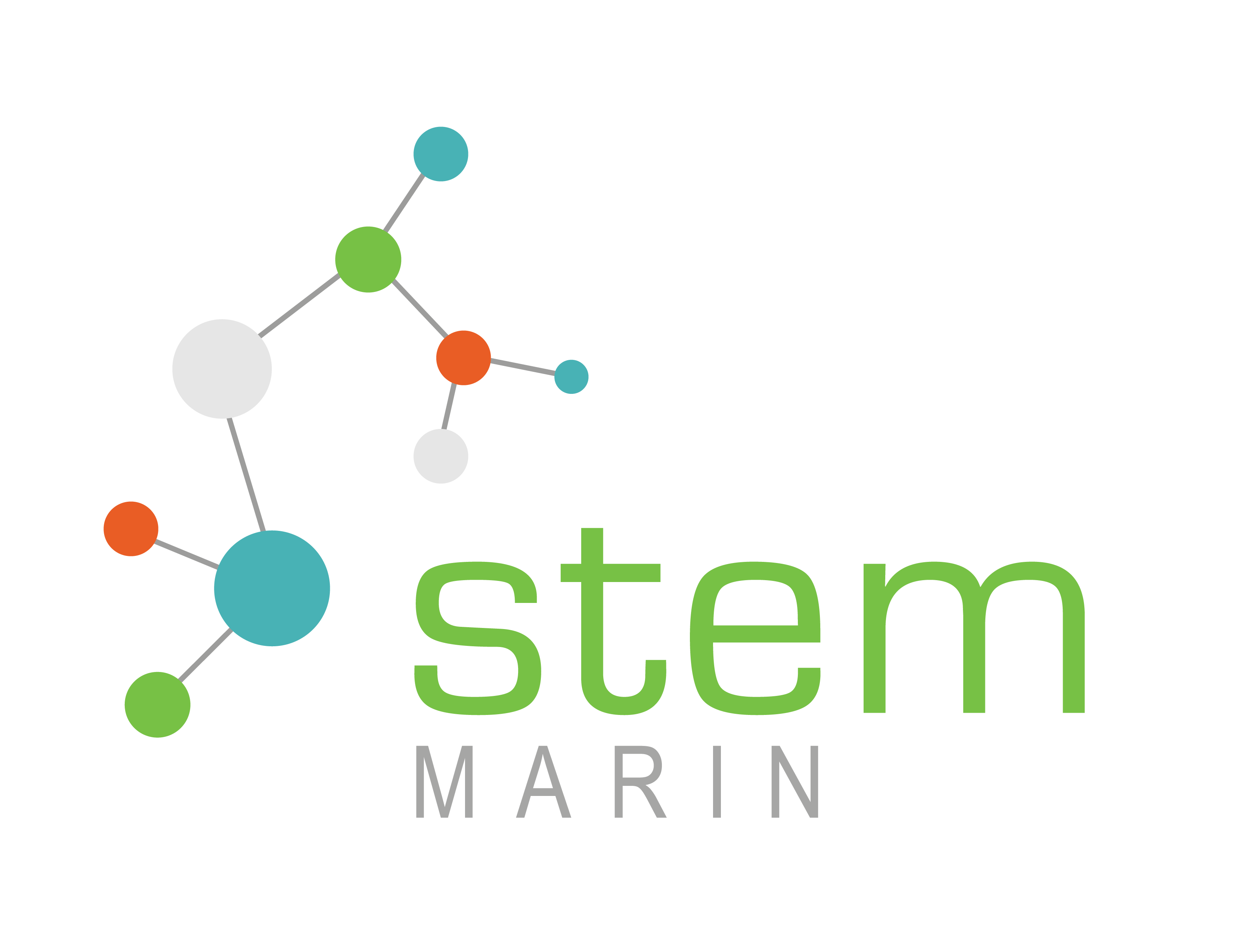STEM Marin is a program for students who are passionate about science, technology, engineering, and mathematics. All of the STEM Marin courses are Project Based so students will learn the content by creating projects and owning their own learning. Below is a progressive course list outlining the courses each student will complete throughout this 4-year program.
Engineering Pathway
9TH GRADE – PHYSICS AND ENGINEERING
During their first year, students will complete the following courses:
10TH GRADE – Biology & STEM Ecology
Students taking the Environmental Engineering course will focus on four essential human needs: Land, Water, Air and Energy. Students will study nutrient cycling, food and agriculture and the water cycle. Climate change, energy use and urban design will also be topics of study. Students will understand how all life is connected on our planet and hopefully leave the course as even better stewards of the environment and advocates for positive change in their communities.
11TH GRADE – CHEMISTRY
As Juniors, all students will focus on the following courses:
12TH GRADE – ENGINEERING
In their final year, all students will complete the following courses:
Biotech Pathway
The STEM Marin Biotech program is a college and career prep pathway focused on biotechnology. Students engage in a rigorous, hands on project based curriculum and will take the equivalent of 8 years of STEM classes. Students will have work based learning opportunities like guest speakers, field trips, job shadowing and internships. All courses meet the UC Life Science lab requirement and incorporates elements of career technical education (CTE).
9TH GRADE – TECHNOLOGY OF BIOLOGY/STEM BIOLOGY
This course covers Ecology, Evolution, Genetics, the Human Body, and Cells and Molecules. Projects and labs include:
10TH GRADE – APPLIED CHEMISTRY AND CONCEPTUAL PHYSICS FOR BIOTECH
Projects in Chemistry include:
Projects in Physics include:
11TH GRADE – BIOTECH 1
The course will cover the following topics:
Labs will include electrophoresis, DNA isolation, restriction digestion and plasmid mapping, bacterial transformation, protein purification, and culture of microorganisms
12TH GRADE – BIOTECH 2
The course will prepare students to work in Biotechnology laboratory and to continue in further studies in Biotechnology. The course will cover the same basic information covered in Biotech 1 with more advanced labs, techniques and agricultural biotechnology.
Labs will include:
Students will create a resume and cover letter and practice interview skills, do an internship or a research project in collaboration with a scientist in industry or academia, complete an electronic portfolio and present a primary research paper.
Art In Science
This four-year program integrates the visual arts and sciences to offer a uniquely interdisciplinary approach to learning. Art & Science units on the steam pathway are designed to align and reinforce each other. Students will have the opportunity to explore the connections between the two fields, leading to a deeper understanding and appreciation of both. Curriculum is hands-on, project based, and crafted for left and right brain exploration. Work-based opportunities may include guest artist presentations, studio visits, and museum field trips.
9TH GRADE – ART IN SCIENCE BIOLOGY
Biological Illustration (Drawing & Painting)
Units of Study:
10TH GRADE – CONCEPTUAL PHYSICS
Art Mechanics (2D & 3D Design)
Units of Study:
11TH GRADE – ART IN SCIENCE CHEMISTRY
Reactive Arts (Sculpture & Ceramics)
Units of Study:
12TH GRADE – SCIENCE ELECTIVE
Art Elective ( + Art In Science Senior Capstone)
Units of Study:
Comprehensive Science
Our Comprehensive Science Program offers San Marin students a more traditional science path that is A-G compliant and meets all standards for graduation.
9TH GRADE – BIOLOGY
Biology is a lab oriented, concept building course that provides important basic information for students. Biology covers cells, all processes, body systems, anatomy and physiology, genetics, evolution and ecology.
10TH – 12TH GRADE – CONCEPTUAL PHYSICS
This course provides a conceptually-based study of the fundamental principles and processes of the physical world. Topics include basic concepts of motion, forces, energy, heat, electricity, magnetism, and the structure of matter and the universe. Students learn essential concepts of physics through demonstrations, laboratory work, and discussion. Careful gathering and analysis of quantitative data is stressed.
11TH – 12TH GRADE – CHEMISTRY
Chemistry is the study of the properties and structure of matter. Topics include atomic theory, atomic structure, organization of the periodic table, writing chemical formulas and naming compounds, chemical reactions, states of matter, thermodynamics, kinetics, electrochemistry, acid/base chemistry, and nuclear and organic chemistry. Course includes lecture and lab components.
